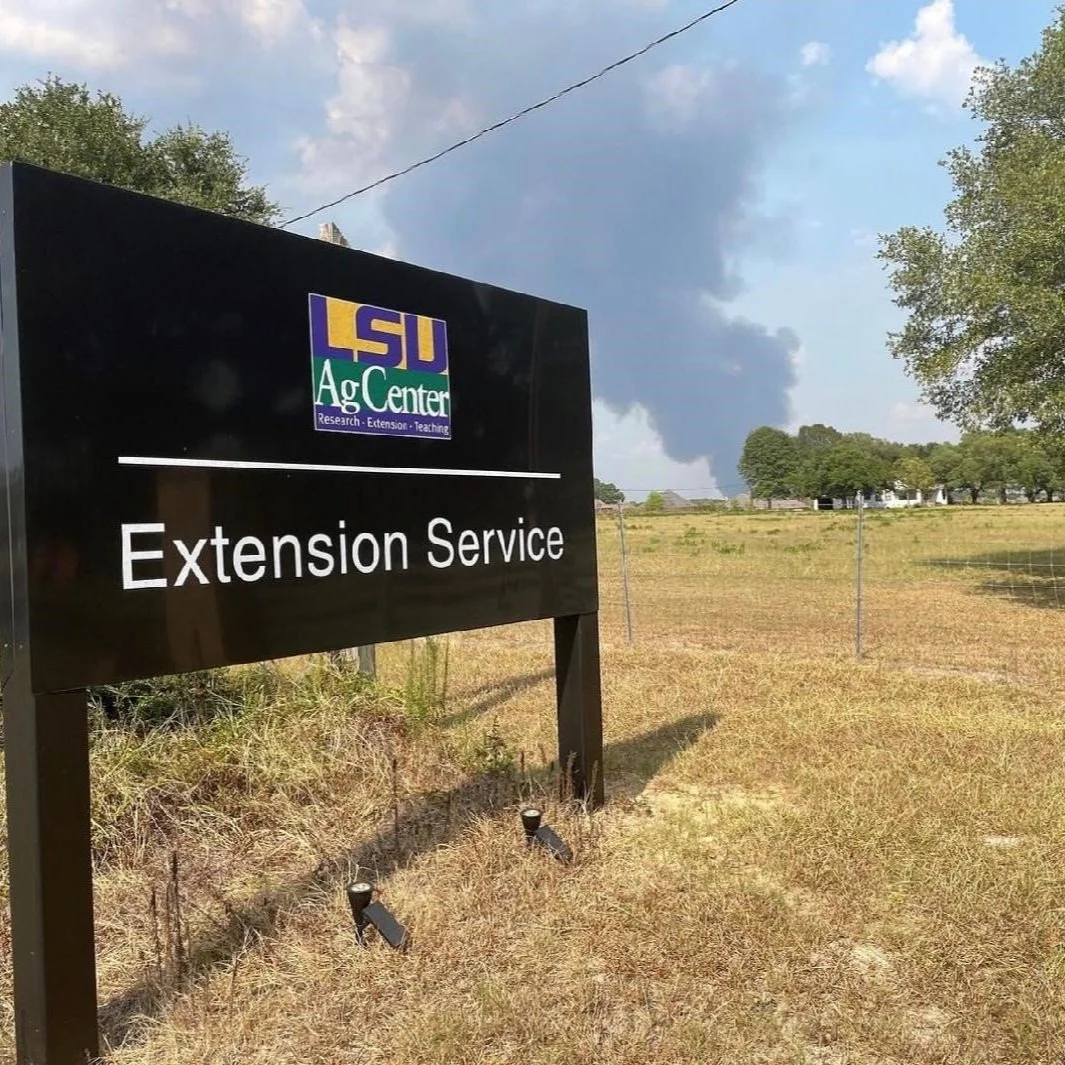The Golden Boot Giving Challenge is back again this year, as the LSU College of Agriculture takes on the University of Arkansas Dale Bumpers College of Agricultural, Food and Life Sciences to see who can get the most donations (# of donors, not dollars) next week leading up to the LSU/Arkansas football game.
Read MoreThe motto of Washington-Marion Magnet High in Lake Charles is “Forward. Onward. Upward.” And that is precisely how sophomore Armund Wilson lives his life.
Wilson’s infectious optimism has helped grow 4-H — an organization he once didn’t know much about — in his high school, his community and even nationally.
Read MoreCow-calf operations are the heart of Louisiana’s livestock industry. Cattle in this sector spend much of their lives grazing perennial and annual pastures, so high-quality forage is important.
Summer 2023 was one of the hottest and driest in recent memory. The drought took a major toll on crop production, and everyone from sugarcane farmers to cattle ranchers felt the effects.
Read MoreSoil pH indicates whether lime is required but not how much. Lime is needed if the target soil pH, which varies by crop, is 0.2 units higher than the actual soil pH.
Buffer pH indicates how much lime is required. Soils with low buffering capacity (high buffer pH) and a small difference between initial and target pH values require less lime. Conversely, soils with high buffering capacity (low buffer pH) need more lime, even for small pH adjustments.
Read MoreTest the soil from each field regularly for every complete crop rotation or every two to three years before making any fertilization decisions.
Collect soil samples from 0 to 6 inches in depth and choose a lab that uses Mehlich-3 extractant.
Obtain fertilizer recommendations based on the soil test for specific crops from the respective state soil testing lab, as these recommendations vary by crop and state.
Read MoreLouisiana 4-H’ers are ready — ready to learn by doing; ready to get their hands dirty; ready to show up for their communities.
For more than 100 years, 4-H has been preparing youth from across the state to be ready for service, STEM, leadership and life.
Read MoreTodd Tarifa, who has spent his career educating Louisiana’s young people through organizations and in the classroom, was named interim associate director of youth development for the LSU AgCenter effective Oct. 1.
He now oversees both Louisiana 4-H and Louisiana FFA, which together reach nearly 126,000 youths.
Read MoreHumans began farming thousands of years ago, but a new study co-authored by two LSU professors says ants had us beat by millions of years.
LSU AgCenter mycologist Vinson P. Doyle and LSU Department of Biological Sciences professor Brant C. Faircloth lent their combined expertise to a study led by Smithsonian Institution entomologist Ted Schultz, which demonstrates that ants began farming fungi after an asteroid struck Earth 66 million years ago, causing a global mass extinction.
Read MoreIn rural Louisiana, food insecurity, poverty and obesity rates are often higher than national and state averages. These challenges make it difficult for residents to access nutritious food and safe communities for physical activity and active transportation, increasing the risk of preventable diseases like Type 2 diabetes and heart disease.
Read MoreComfortable early fall temperatures provided an ideal backdrop for a field day held Sept. 26 at Richard Farms in Kaplan, where attendees got a firsthand look at LSU AgCenter research projects focused on conservation practices.
Richard Farms, a rice and crawfish operation, is one of the model farms where AgCenter scientists are conducting research as part of a grant from the Patrick F. Taylor Foundation.
Read MoreIn Louisiana’s urban areas, LSU AgCenter extension agents are working to innovate, educate and improve lives. Throughout October, LSU AgCenter Extension will celebrate Urban October, a worldwide campaign the United Nations launched to focus on the opportunities and challenges created by the fast rate of change in cities.
Read MoreThe Louisiana Agriculture Hall of Distinction is now accepting nominations for its annual induction ceremony, which will be held March 6 in Baton Rouge.
The nomination form can be obtained online at www.louisianaagriculturehallofdistinction.com or through any parish LSU AgCenter office. The deadline for receiving nominations is Nov. 18.
Read MorePolicy decisions that affect producers depend on good data and information. Accurate and timely data is essential for developing effective agricultural policies, which in turn helps farmers make informed decisions about their production and inventory management. In light of this, the U.S. Department of Agriculture (USDA) releases several monthly reports to provide an outlook of demand and supply fundamentals.
Read MoreEstablished in 1949, the LSU AgCenter Sweet Potato Research Station in Chase, Louisiana, stands as a testament to over seven decades of dedicated research, innovation and service to the sweet potato industry. Spanning 308 acres, this facility has been at the forefront of advancing the sweet potato industry in the United States, transforming its trajectory from a humble crop into a thriving specialty crop with a diversified market base.
Read MoreThe LSU AgCenter is taking significant steps to address obesity in Louisiana. More than 35% of adults in the state are affected by this condition, according to the Centers for Disease Control and Prevention. New CDC maps show that Louisiana is one of 23 states where adult obesity rates are at or above 35%.
Read More














